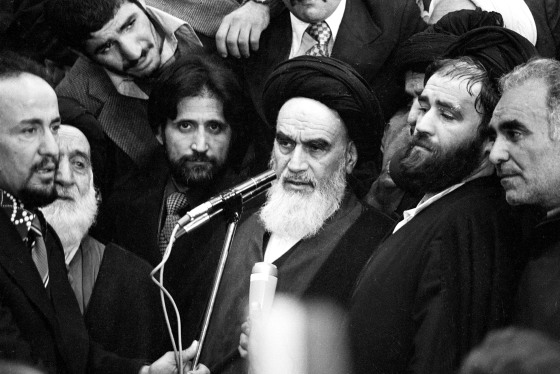Iranian activists say protesters set a fire at the ancestral home of the founder of the Islamic Republic, Ayatollah Ruhollah Khomeini, the latest in a series of taboo-breaking acts in a wave of protests rocking the country.
Activists posted video clips on social media showing a flash of fire at a building with arches that resemble archival images of Khomeini’s home. Reuters and Agence France-Presse verified the location but not the timing of the images. NBC News has not verified the video.
Iran’s semi-official Tasnim news agency, however, denied Khomeini’s home, which has been turned into a museum, had been set ablaze and said it remained open to the public.
“The doors of the house of the late founder of the great revolution are open to the public,” the agency said.
The opposition group 1500tasvir reported that the fire was set on Thursday night when protests took place in Khomein, where the late leader’s house is located.
Khomeini led Iran’s Islamic revolution in 1979 that overthrew the country’s pro-Western monarch, Shah Mohammad Reza Pahlavi, setting up a theocratic state that gave ultimate political authority to Shiite clergy. He served as the country’s first supreme leader and died in 1989.
Khomeini’s image and name still permeates public spaces in Iran. But in protests now sweeping the country, Iranians have removed street signs bearing his name, burned posters with his image and chanted for the end of the regime.
The protests erupted in September after a 22-year-old Iranian woman from the country’s Kurdish region, Mahsa Amini, died in police custody after she was arrested for allegedly failing to abide by a strict dress code that requires women to cover their hair and the shape of their bodies.
Taking aim at symbols of the regime, women protesters, who have been at the forefront of the demonstrations, have marched without headscarves or burned them in front of cheering crowds, flouting the regime’s firmly entrenched dress code for women imposed after the 1979 revolution.
Protests continued across the country on Friday as funerals were held for young Iranians that activists say were killed by security forces, according to human rights groups.
In the southwestern city of Izeh, crowds gathered for the funeral of a nine-year-old boy, Kian Pirfalak. His family says he was killed by police, but Iranian authorities denied it and say the boy was shot by terrorists.
Human rights groups based abroad say more than 300 Iranians have been killed in the protests.
In solidarity with the protests, many business owners this week closed their shops in bazaars and shopping districts in several cities including Tehran, Mashad, Isfahan and Shiraz, according to the New York-based Center for Human Rights in Iran.
Iranian leaders have blamed the protests, which they refer to as “riots,” on foreign enemies, citing Saudi Arabia and the U.S.
